
Wagner’s soaring masterpiece makes its triumphant return to the Met stage after 17 years. In a sequel to his revelatory production of Parsifal, director François Girard unveils an atmospheric staging that once again weds his striking visual style and keen dramatic insight to Wagner’s breathtaking music, with Music Director Yannick Nézet-Séguin on the podium to conduct a supreme cast led by tenor Piotr Beczała in the title role of the mysterious swan knight. Soprano Tamara Wilson is the virtuous duchess Elsa, falsely accused of murder, going head to head with soprano Christine Goerke as the cunning sorceress Ortrud, who seeks to lay her low. Bass-baritone Evgeny Nikitin is Ortrud’s power-hungry husband, Telramund, and bass Günther Groissböck is King Heinrich.

Max, a young hunter, must win a shooting competition to claim the hand of his beloved Agathe. But on the eve of the competition, seemingly having lost all shooting prowess, Max allows himself to be convinced by his rival Kaspar to make a pact with the devil to use seven magic bullets which never miss their target. Wagner said that Carl Maria von Weber’s early-Romantic gem was the most German of German operas. With touches of the eerie supernatural, Der Freischütz is an irresistible mix of colourful folklore, tender romance, and a passionate struggle between good and evil - all captured in Weber’s tuneful and dramatic score. Successful Russian theatre, opera and film director Kirill Serebrennikov makes his debut in Amsterdam. In his approach to the opera, the struggle for success is transposed from the world of hunters and that of artists.

In its most ambitious effort yet to bring the joy and artistry of opera to audiences everywhere during the Met’s closure, the company presented an unprecedented virtual At-Home Gala, featuring more than 40 leading artists performing in a live stream from their homes all around the world.

Baron Ochs auf Lerchenau
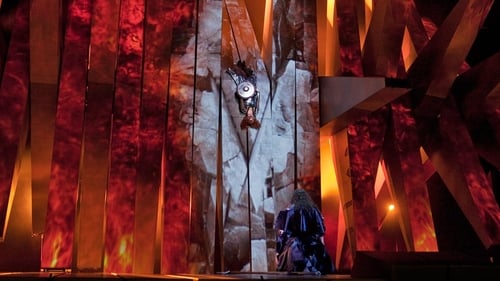
Hunding
Soprano Christine Goerke plays Brünnhilde, Wotan’s willful warrior daughter, who loses her immortality in opera’s most famous act of filial defiance. In this Live in HD transmission of Die Walküre, the second and most popular installment in the composer’s sweeping tetralogy, Goerke is joined by bass-baritone Greer Grimsley as Brünnhilde godly father, Wotan, and mezzo-soprano Jamie Barton as his unbending wife, Fricka. As the incestuous lovers Siegmund and Sieglinde, soprano Eva-Maria Westbroek and tenor Stuart Skelton—alongside bass Günther Groissböck as Sieglinde’s bloodthirsty husband, Hunding—round out the principal cast. And on the podium, Maestro Philippe Jordan conducts Robert Lepage’s innovative staging, which uses state-of-the-art stage technology to tell Wagner’s mythic tale.

The high-point of the 2017 Bayreuth Festival, Barrie Kosky’s astonishingly entertaining and convincing new Meistersinger is a triumph: a production of enormous insight and great quality... that plumbs the depths of both the opera and its composer.
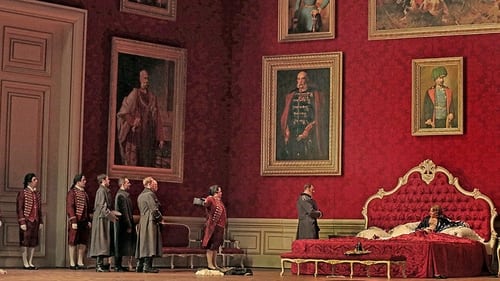
Baron Ochs
This outstanding performance marks an unforgettable night in Met history: Renée Fleming's farewell to her signature role as the Marschallin, and Elīna Garanča's final turn as Octavian. This new production was staged by Robert Carsen, and is conducted by Sebastian Weigle

Baron Ochs
In his new production, Robert Carsen places the action at the end of the Habsburg Empire, underscoring the opera’s subtext of class and conflict against a rich backdrop of gilt and red damask

basse

Fasolt
Frank Castorf’s staging of the Ring, premiered in 2013 and filmed in 2016, provoked controversy right from the beginning. For Castorf, the Rheingold of our days is oil; thus he places the first part of the tetralogy at a gas station on Route 66. Die Walküre is situated in Baku, Azerbaijan, which was seized by the Bolsheviks in 1920 for its oil, whereas Siegfried takes place in a socialist equivalent of Mount Rushmore and at Berlin’s Alexanderplatz. Götterdämmerung is set somewhere in the GDR, ending up at New York’s stock exchange. Whilst Castorf’s staging polarized, Marek Janowski’s musical reading was unanimously praised, as was the excellent cast including in this opera Iain Paterson (Wotan), Nadine Weissmann (Erda), Albert Dohmen (Alberich) and Roberto Saccà (Loge).

HERMANN
Met Music Director James Levine leads this Live in HD presentation of Wagner’s early Romantic opera, starring Johan Botha in the title role of the minnesinger torn between earthly passion and true love. Eva-Maria Westbroek is Elisabeth, whose unswerving devotion redeems Tannhäuser’s soul, and Peter Mattei sings Wolfram, his faithful friend. Michelle DeYoung as the love goddess Venus and Günther Groissböck as Landgraf Hermann complete the cast. Otto Schenk’s classic production was the first of his acclaimed Wagner stagings at the Met.
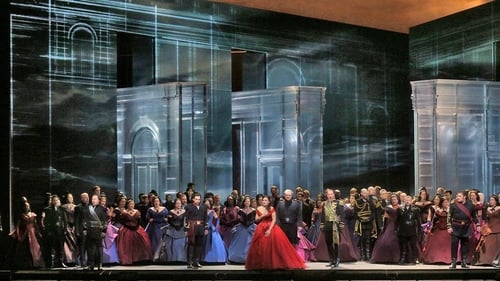
Lodovico
La audaz producción de Bartlett Sher, la ganadora del premio Tony, investiga los fundamentos psicológicos del escenario dinámico de Verdi de la gran tragedia de Shakespeare. A la cabeza de esta actuación está Yannick Nézet-Séguin, quien saca a la luz todas las emociones en cascada en la turbulenta puntuación de Verdi. Aleksandrs Antonenko es Otello, el general triunfante del ejército veneciano que finalmente es derribado por las insinuaciones astutas de su amigo Iago (Željko Lučić). Sonya Yoncheva continúa ganando fans como Desdemona, la esposa fiel y duradera de Otello.

Baron Ochs
With their “comedy for music” in the spirit of Mozart, Richard Strauss and his inspired librettist Hugo von Hofmannsthal created the most popular of all their works and one of the most frequently performed operas of all time. In the guise of a gossamer-light and supremely entertaining high-class comedy, Der Rosenkavalier touches on universal themes such as love, sex, marital fidelity and the changes that human relations undergo over time – and all of it set to music of the most glorious kind imaginable. With its stellar cast under the inspired direction of Harry Kupfer, the 2014 Salzburg Festival’s production of Der Rosenkavalier was one of the most internationally acclaimed interpretations of the work since the start of the new millennium. “A musical feast from beginning to end“ (Wiener Zeitung).

Gesler
Live from Munich June 2014. Guillaume Tell , in a new production by 30-year-old Wunderkind stage director Antú Romero Nunes, opens this year’s Munich Opera Festival with an orgy of fabulous singing.
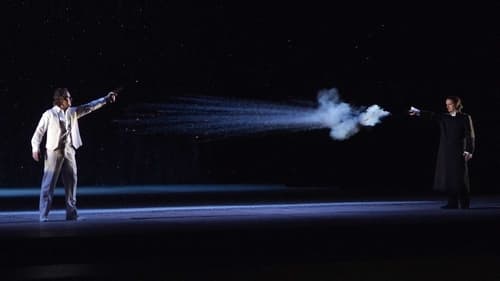
Prince Gremin
In Trelinski's timeless production he leads a superb, first-class young cast headed by Artur Ruzinski as Onegin and Kristīne Opolais as Tatyana. Mariusz Trelinski, Polish filmmaker and theater director, has created a series of dream-like, surrealist tableaux of great suggestive beauty.

Water Gnome, Rusalka's father
A legend of mermaids, mere mortals, and sylvan glades. Be transported to a mystical world of water sprites, witches, and wood nymphs. In exchange for love, Rusalka will relinquish not only her mermaid magic, but also her voice.

From the Queen of the Night's vocal pyrotechnics to Papageno's chirpy birdsongs, The Magic Flute is one of Mozart's most charming and engaging operas. However, its fairytale surface conceals the mysteries of an initiation ritual and a multi-layered plot, packed with allegories to fire up the imagination. This celebrated production by artist William Kentridge joyfully bursts onto the stage of Teatro alla Scala in Milan, featuring the dazzling Russian coloratura Albina Shagimuratova as the Queen of the Night, and Italian bass Alex Esposito as Papageno, one of the most sought-after artists of his generation.

The Water Goblin
Rusalka is not a happily tragic fairy tale. Rusalka’s lake is a dark, damp cellar, where she is imprisoned with her sisters by her abusive father. But once she finally escapes, she is thrown mute and alone into an equally brutal world where she is utterly unequipped to survive, and he increasingly looks like a protector.
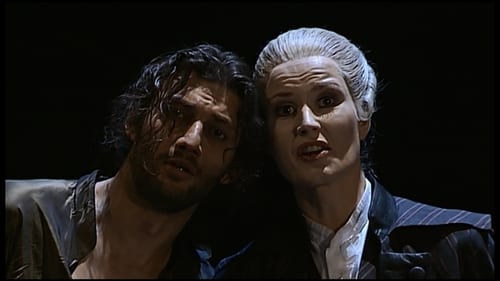
Don Fernando
Nikolaus Harnoncourt is the conductor in this 2004 production of Beethoven's only opera staged at the Zurich Opera House. Finnish soprano Camilla Nyland takes the title role, with performances by Jonas Kaufmann, Laszlo Polgar and Alfred Muff.

Boland
Schubert Opera composed in 1823 but not performed until 1988. It is set in a medieval world and based on La Chanson de Roland and the legend of the love between Eginhard and Emma. Live performance from 2007 at the Opernhaus Zürich.
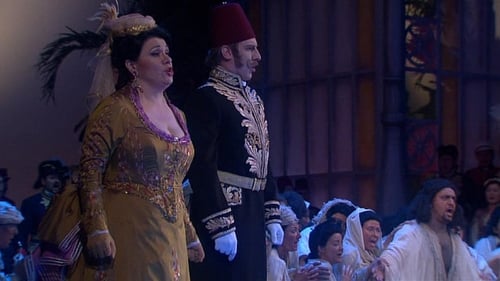
Il Re (bass)
The Zurich Opera presents a stunning new production of Verdi’s most popular, most spectacular work. Responding superbly to the role, Swedish soprano Nina Stemme – she of the richly clear voice – offers an Aida vibrant with love and emotion. Heading a magnificent cast, she makes a poignant couple with talented tenor Salvatore Licitra as Radamès. Luciana d’Intino is nothing less than brilliant in the role of Aida’s rival Amneris and Juan Pons imbues his Amonasro with enormous humanity. Conducting the Zurich Opera orchestra and chorus, Adam Fischer brings out all the score’s musical and dramatic majesty.

Wagner, sein Famulus
Faust - a lonely scholar, despairing of life, who has so far failed to discover its highest meaning - is given a book on black magic from three mysterious students from Cracow. When Mephistopheles appears and proposes a pact with Faust, the two of them set off together on a (dream) journey. Doktor Faust remained a fragment at the time of the composer's death. Busoni died in 1924, unable to complete what he himself described as his "state masterpiece" - an opera to which he had a deep personal attachment. The missing scenes from the score were completed by his pupil, Philipp Jarnach, whom Busoni had become acquainted with during his period in exile in Zurich. In this form the opera was given its first performance in Dresden in 1925. Then in the 1980s the conductor Anthony Beaumont came across previously undiscovered sketches by Busoni and produced a new version of Doktor Faust. The current recording uses the Jarnach score.

Publio
This is an effective staging, though the set looks medieval and the costumes are modern. It’s well paced, well played, well sung. Jonas Kaufmann is an ideal Tito. His voice is not only beautiful and flexible, it’s also ample, retaining warmth and sweetness when he sings out. The character of Tito is too good to be true, but Kaufmann makes him intense, noble, and beliveable. Vesselina Kasarova is riviting as Sesto. Her voice is gorgeous and multi-colored, her technique exquisite, her immersion in the role complete.




















